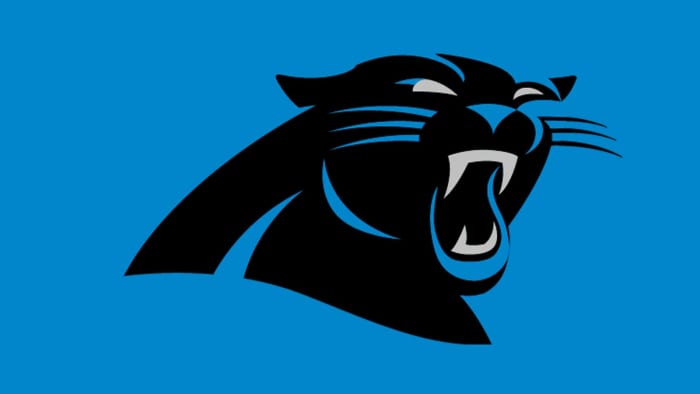In 1995, the Panthers traded the No. 1 overall pick and took quarterback Kerry Collins fifth overall instead. In 2011, Carolina chose quarterback Cam Newton with the No. 1 overall selection.
Having the No. 1 overall pick in the NFL Draft is a blessing, to be sure, but a team almost has to be cursed to get it.
And every general manager in the league knows it can be a curse that will haunt a franchise for years if they get it wrong.
In their 20 years of existence, the Panthers have owned the No. 1 overall choice twice. The first time was in 1995, when, as an expansion franchise, they - after much deliberation - traded it.
The Panthers also owned it in 2011 and used it that time, taking quarterback Cam Newton. Carolina also would have had the No. 1 pick in 2002 if not for the arrival of another expansion team, the Houston Texans, who chose first and drafted quarterback David Carr. Carolina selected second and took defensive end Julius Peppers.
Marty Hurney, the Panthers' general manager from 2002-2012, admitted there is plenty of outside pressure to make sure you get it right when you have such a high pick, knowing that if you don't "it can set your organization back years."
But Hurney, like Bill Polian before him and Dave Gettleman after, knows the most important factor in getting such a pick right is to have a solid talent evaluation process in place and then simply having the faith to trust what comes of that.
"Honestly, I've never understood the idea of pressure, particularly in regard to high draft choices," said Polian, Carolina's general manager for the team's first three drafts. "You know you've done your homework. You've done all the work and you've made your decision based on very, very fine and appropriate parameters. And you've involved everybody from the coaching staff to the scouts to the medical team. As (former Panthers director of player personnel) Dom Anile used to say, 'You make the decision based on all that and don't look back.'
"So I never really felt any pressure. We trusted our process."
That included 1998, Polian's first draft as president of the Indianapolis Colts after leaving the Panthers. As hard as it may be to believe now, there was intense, league-wide debate over which quarterback was the better pro prospect - Peyton Manning from Tennessee or Ryan Leaf from Washington State.
Polian chose Manning, who has gone on to become one of the most prolific passers in NFL history. As he prepares to enter his 18th NFL season, Manning, now with Denver after leading Indianapolis to two Super Bowls, has passed for nearly 70,000 yards and a record 530 touchdowns.
The San Diego Chargers, picking second, took Leaf. He went on to play just three seasons with the Chargers and one with the Dallas Cowboys, compiling a 4-17 record as a starting quarterback and finishing his brief NFL career with 14 touchdown passes and 36 interceptions.
"No, it wasn't difficult taking Peyton. But everybody has amnesia now," Polian said of his 1998 decision and the Manning-Leaf pre-draft debate.
Polian also was in charge of the Panthers' very first draft when they owned the first pick and traded it to Cincinnati in exchange for the fifth overall selection in the first round and a second-round choice (36th overall). Carolina parlayed those picks into quarterback Kerry Collins in the first round and defensive end Shawn King in the second round. Even though Collins was the second quarterback taken in the draft behind Steve McNair, who went to the Houston Oilers with the third pick, Polian said the Panthers had Collins rated higher.
The consensus in Carolina's war room on draft day that year was that they could trade the first overall pick, still get Collins and acquire another valuable pick. Polian said that Mike McCormack, then the team's president, constantly reminded everyone in the organization that they needed to build with a top-notch quarterback.
"Mike reminded me many times that he played on some great (Cleveland Browns) teams that had the greatest running back arguably of all time, Jim Brown, and they didn't win enough championships because they didn't have a quarterback," Polian said.
Like Polian many years before him, Hurney entered the 2011 draft believing the Panthers likely needed to use the treasured first pick on a quarterback. He said the team's focus quickly centered on Newton, who had just led Auburn to the national championship.
"When we started - and I've said this over and over again - we had to go through the top players and the top quarterbacks in the league, because when you're (picking) No. 1, you're likely there because you don't have a definitive answer at quarterback," Hurney said.
"So we went through all the quarterbacks. The first time we put Cam on tape and went through two or three games, it was very obvious very early that he had a lot of traits of your franchise quarterback. He had the 'it' factor. He threw the ball accurately. He had athletic ability, but he always looked down field. He wasn't a guy who pulled it down and looked to run first."
The key for Hurney was to evaluate Newton as thoroughly as possible through the system the team had in place and then to simply trust the process and the decision it produced.
"The more we got to know him - and we did an extensive investigation on him - the more we liked him. It became very apparent that he was the guy we should take with the first pick," Hurney said.















